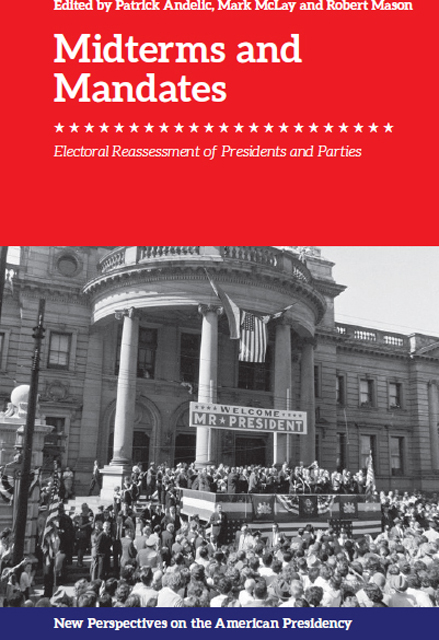Book contents
- Frontmatter
- Contents
- List of Figures and Tables
- Acknowledgements
- Notes on Contributors
- Preface: Why Midterms Matter
- Introduction: Midterms and Mandates, Presidents and Parties
- Part One Midterm Elections in Institutional Context
- Part Two Testing the New Deal Coalition
- Part Three The Republican Resurgence
- Index
7 - ‘Peace need not be poison at the polls’: John F. Kennedy and the Challenge of the Right in the 1962 Midterms
Published online by Cambridge University Press: 07 June 2023
- Frontmatter
- Contents
- List of Figures and Tables
- Acknowledgements
- Notes on Contributors
- Preface: Why Midterms Matter
- Introduction: Midterms and Mandates, Presidents and Parties
- Part One Midterm Elections in Institutional Context
- Part Two Testing the New Deal Coalition
- Part Three The Republican Resurgence
- Index
Summary
Shortly before the 1962 midterm elections, President John F. Kennedy’s special advisor, Arthur Schlesinger Jr, met with the Soviet ambassador to the United States, Anatoly Dobrynin. During the meeting, Dobrynin expressed particular interest in what he perceived as the growing ‘strength’ of conservativism in the US Congress. Not only were several prominent Republican candidates standing on conservative platforms, typified by former Vice President Richard Nixon’s campaign for the California governorship, but the ultra-right-wing John Birch Society (JBS) had candidates running on the Republican ticket. Given that deep social conservativism mixed with rigid anti-communism, it is not surprising that the Soviets may have been concerned by a perceived ‘rightward’ turn in American politics.
Schlesinger, however, reassured Dobrynin that this was all part of the natural ‘ebb and flow’ of American politics and that the Soviets should not worry unduly about this apparent rise of the Right: ‘observers must take care not to spend all their time watching the sideshows while the parade marches by outside.’ In the immediate wake of the midterms, Schlesinger’s dismissal seemed well founded. New York Times reporter Homer Bigart described the results as ‘disheartening’ for conservatives, noting that the public face of American ultra-conservatism, Republican Senator Barry Goldwater of Arizona, was unavailable for comment the day after the midterms because he was unexpectedly travelling. Goldwater, Bigart suggested, had slunk away with his tail between his legs. The sideshow was over.
The ready dismissal of the efforts of the Right in the 1962 midterms obfuscates a significant story about the fracturing of the Democratic Solid South, the growth of the New Right, and the beginning of electoral problems for the Democrats which would see Richard Nixon – his political career seemingly finished by defeat in the California gubernatorial election of 1962 – sweep to power in the 1968 presidential election. Viewed through the prism of winners and losers, the 1962 midterms were a trend-bucking success for Democrats. This chapter, however, argues that a closer examination of voting patterns reveals a more complex picture, with Republicans making small but significant inroads in the supposedly Solid South. President Kennedy sensed these electoral weaknesses and, the chapter explains, sought to offset them by broadening his appeal to African Americans and so-called ‘peace voters’.
- Type
- Chapter
- Information
- Midterms and MandatesElectoral Reassessment of Presidents and Parties, pp. 168 - 190Publisher: Edinburgh University PressPrint publication year: 2022



